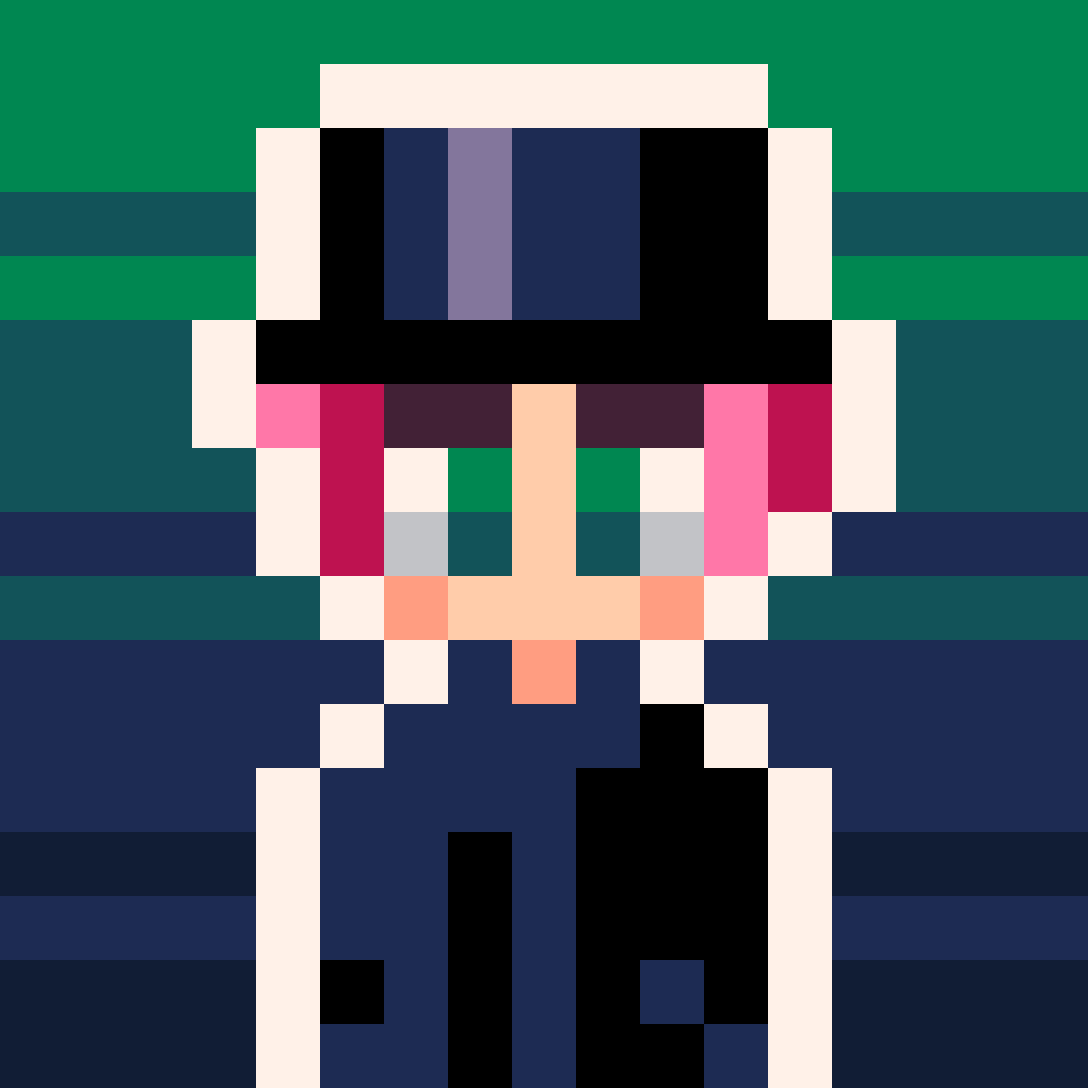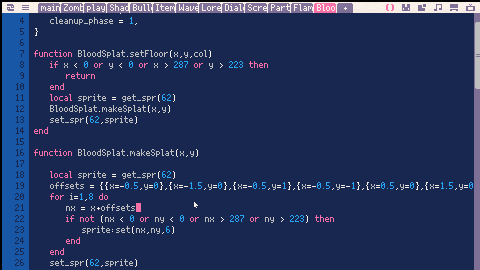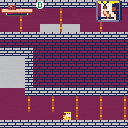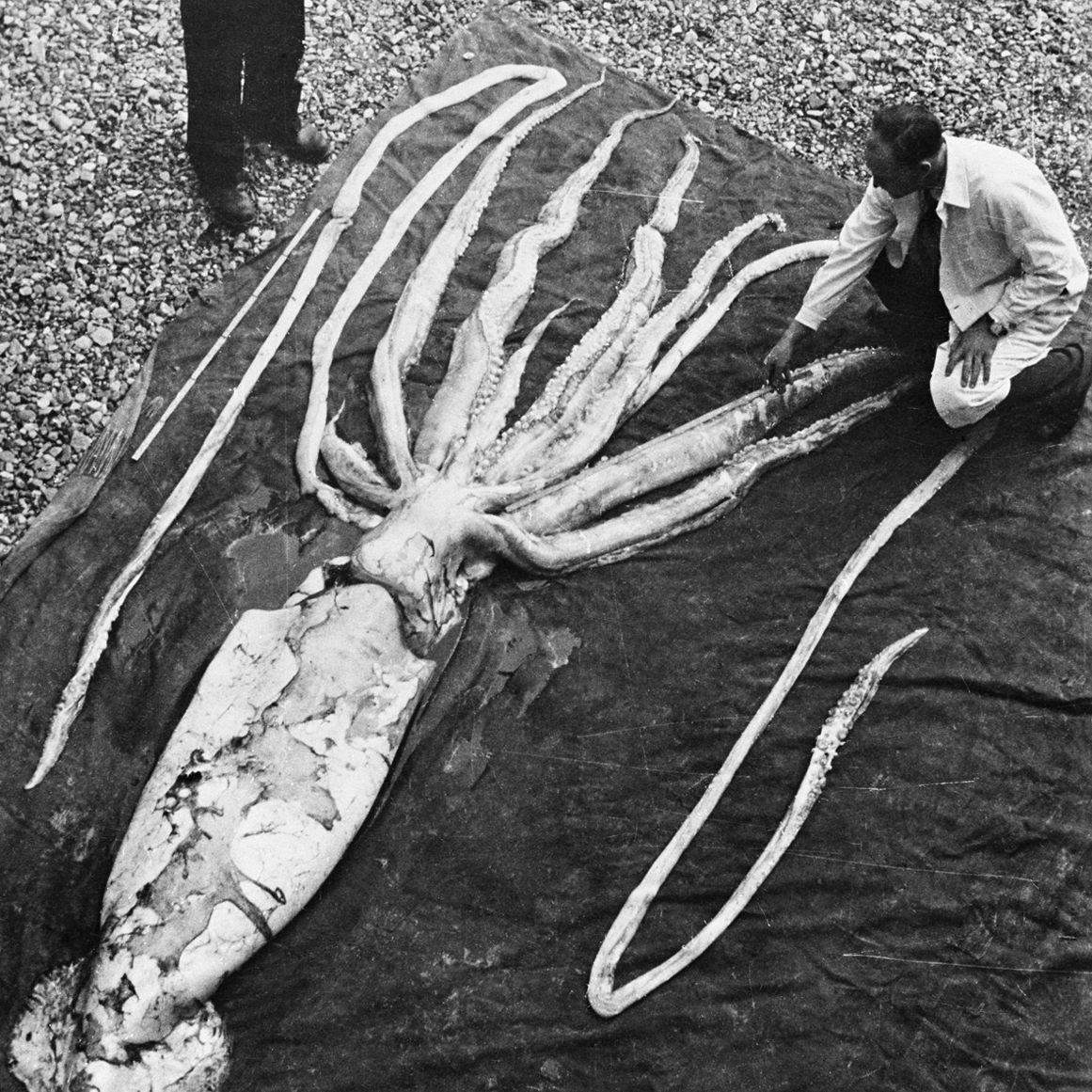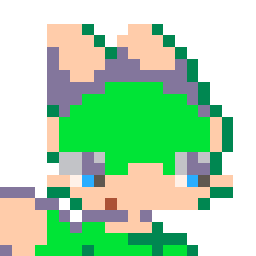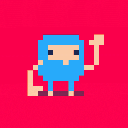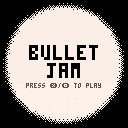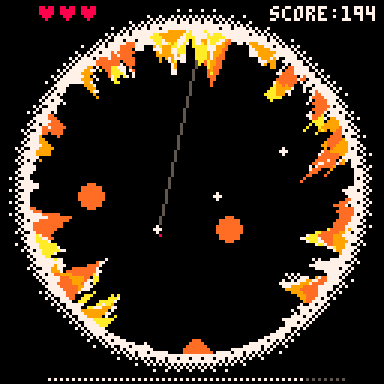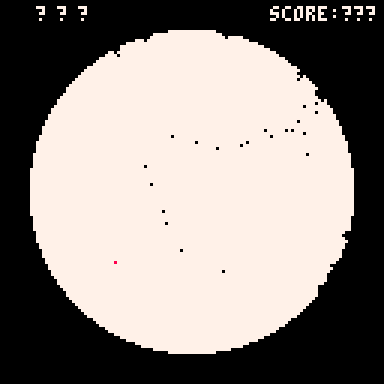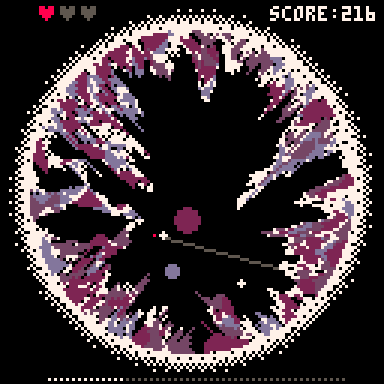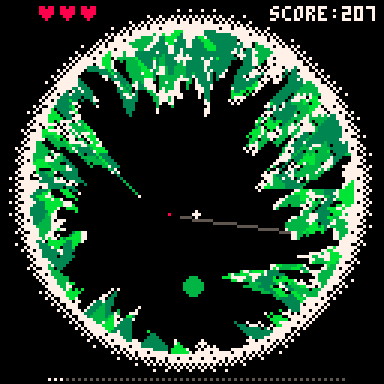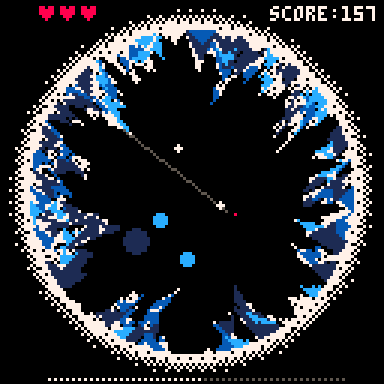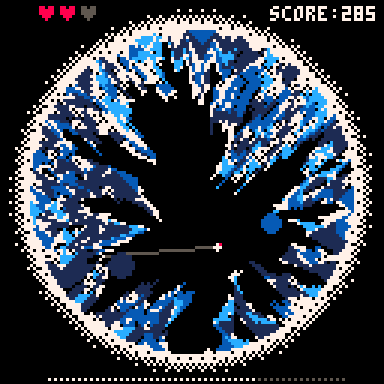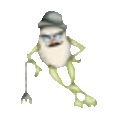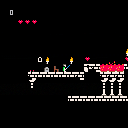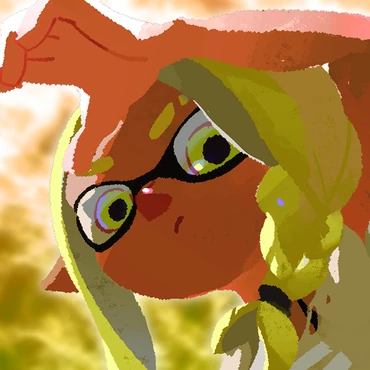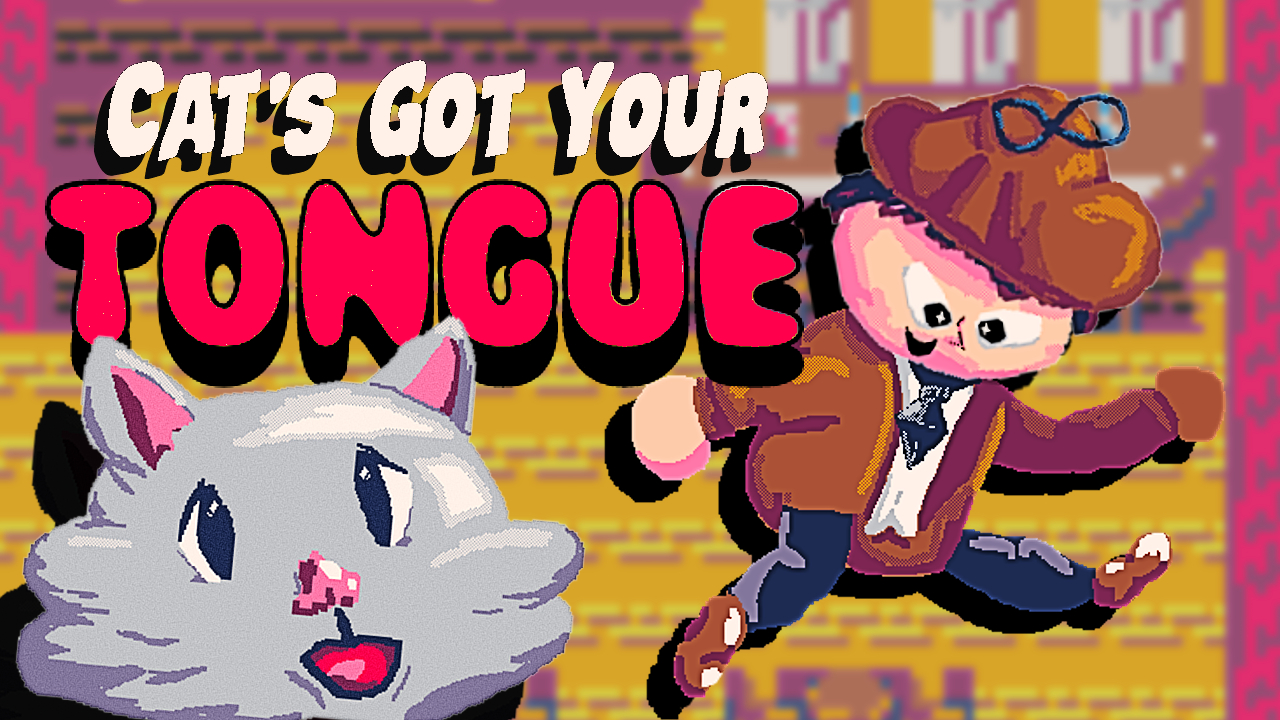
Oh no! There's a cat thief running amuck, and they have the power to steal other cats' MOUTHS! Use detective reasoning and spot-the-difference prowess to catch this troublesome feline!
Instructions
Use the mouse to click on cats. You may accuse any cat of the crime.
Tap the arrows on screen to move from room to room.
When the timer runs out, the cat thief will steal the mouths of the other cats in that room. Don't let 4 crimes happen or you lose!
How do you determine the criminal? Simple! The culprit is the only cat who will move between rooms! Find the cat who's been switching rooms and put 'em in their place!
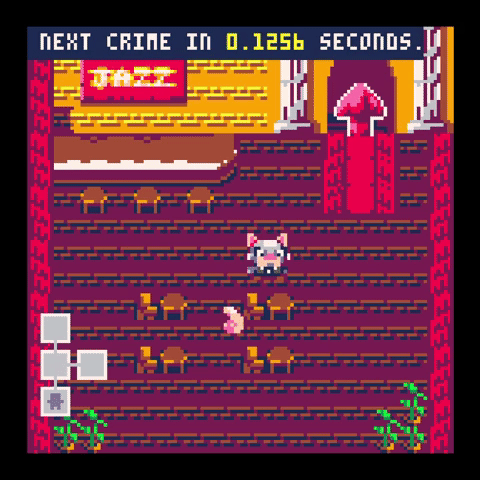
What's better than this? just girls ballin' around.
This is a two player game, so you'll have to be nice and convince someone to play with you.
This is a cartridge derived from Zep's original Collision example cartridge, I added a bunch of code to make a little game out of it while having a friend create the art and characters for it as a bit of an experiment.
There's no ending, so feel free to ball around until you've had your fill.
I started this project when I was still very excited to program in PICO-8. Now, I feel a little burned out - and I wanted to just get this out there before I lost all interest, so it's lacking plenty of polish.
PROTIP for COOL people that read cart descriptions : you can hold Z to dash.
This is a simplified kind of inverse kinematics. The function finds an arm position that will reach a certain point. Simplified in the sense that this is done just using vector maths instead of an actual IK algorithm. You can look at this desmos graph if you want to see the maths more closely.
Input:
- Shoulder position (sx,sy)
- Hand position (ex,ey)
- Arm length (dist)
Output:
- Elbow position (kx,ky)
- Hand position (ex,ey)
The arm can only reach so far, hence the returned hand position. You can see the difference if you try to over-extend the arm.
It hasn't been optimised for tokens and the variable names don't really make sense, so apologies about that
function inv_kin(_sx,_sy,_ex,_ey,_dist)
local mx,my=(_ex-_sx)/2,(_ey-_sy)/2
local mm=sqrt(mx^2+my^2)
if mm>_dist then
return {kx=_sx+_dist*mx/mm,ky=_sy+_dist*my/mm,ex=_sx+2*_dist*mx/mm,ey=_sy+2*_dist*my/mm}
end
local km=sqrt(_dist^2-mm^2)
local kx,ky=km*-my/mm,km*mx/mm
return {kx=_sx+mx+kx,ky=_sy+my+ky,ex=_ex,ey=_ey}
end |
And in the draw function
local ik=inv_kin(body_x,body_y,hand_x,hand_y,40) ... spr(3,body_x-4,body_y-4) spr(2,ik.ex-4,ik.ey-4) spr(1,ik.kx-4,ik.ky -4) |
If you want to change the elbow direction, change the line
local kx,ky=km*-my/mm,km*mx/mm to
local kx,ky=km*my/mm,km*-mx/mm (swap the sign of mx and my)
Around 6 months ago, I remember finding a cartridge on Pico 8 where you could input assembly instructions and the program would execute them on a small screen. No matter how hard I look, I cannot find anything like this. Does anybody know what I found?
edit: nevermind, literally as soon as i made this post i found it. It's called Micro-8

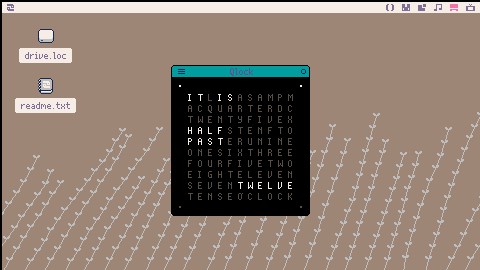
Qlock
A clock application that tells the time with words.
Based on the Qlocktwo design.
Usage
The time to the nearest five minutes is displayed with words.
Each lit corner dot indicates an additional minute past the displayed time.
Eg. "it is half past four" with two lit corners indicates a time of 4:32.
The "second display" can be switched on to view seconds past the minute.
Multiple colour palettes are available, including some generated from the
user's current theme. Feel free to edit these to your liking.
Controls
- Up/down arrow keys to toggle "second display".
- Left/right arrow keys to change colour palette.
フラワーオブライフのような模様を描画してみたくなり、作ってみました。
クエリは"HTBL()"の解析をある程度理解する必要があります。まずサンプル(tab:6)を見てください。
演出はパートでテーブル区切られており、パートごとに描画グループを複数設定することができます。
クエリ作成(QUERY)
描画グループの指定
{id number radius color distance angle [option]}
- id: 操作する描画オブジェクトのインデックス
- number: 描画する数
- radius: 描画する円の半径
from here on, there shall be no overflows.
here it is!
5 versions later, i managed to understand how to do arithmetic.
this is an idle clicker game modeled after cookie clicker!
i basically just reimplemented the entire game around a bignums library.
v2 was around an alpha version of said library, but it didn't work as well as the one that Josiah Winslow provided me.
with a few tweaks, i was able to get this version running!
thanks to them for like half of this code! it's satisfying to see it finally out.
upgrades and prestige are unimplemented as of now. this is basically a new game!

Is my frist cartridge using zep user icon in label
Samples
Sample in 2-bit playing song Never Gonna Give you Up on O or Z
Credits
Code @NazarFloppaLovesP8
Defy @bikibird

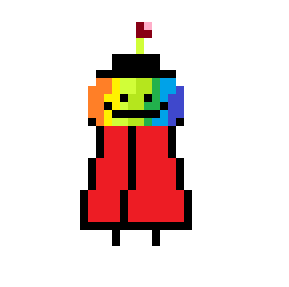
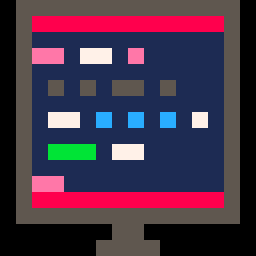

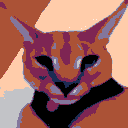
Hi everyone! This is my first PICO-8 game. I hope you like it. I was playing the other day Pocket Card Jockey on the 3DS and decided to make a simple version of the card game in PICO-8. So, I present to you:
Up-Down Solitaire
Try to empty the board by playing cards from the last row onto the discard pile. You can only play a card with a number right after or right before the number of the discard pile. For example, you can play a 3 onto a 2 or a 4, but you cannot play the 3 onto another 3 or onto a 10. Colors and suits don't matter. As and King are connected.
If you cannot play any card. Draw a card from the drawing pile. Choose the number of jokers to change the difficulty (A better tutorial can be found inside the cart).
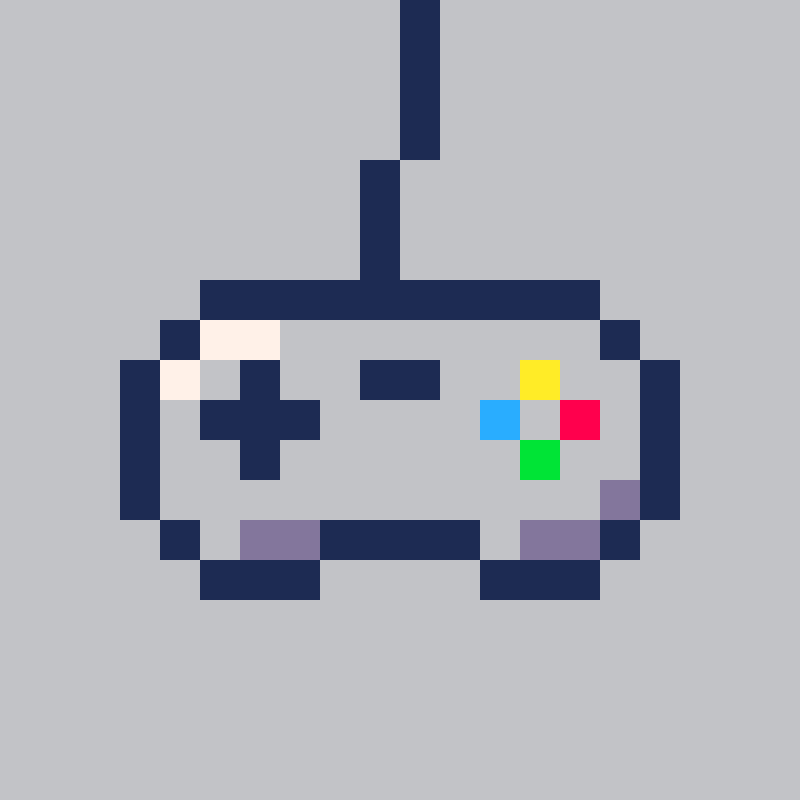

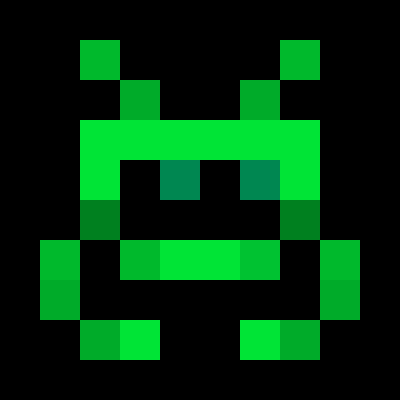
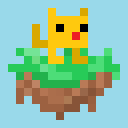
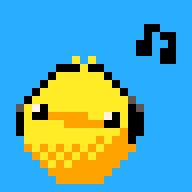
Hello,
This is my first time ever publishing a game and I am super excited!
DISCLAIMER
I actually followed SpaceCat's tutorial on Youtube so this is not something I came up with. However, I decided to upload it anyways because I did add my own spin on it and felt that I had actually done a good job with the coding. I would love feedback so I can improve my programming skills for my first official game.
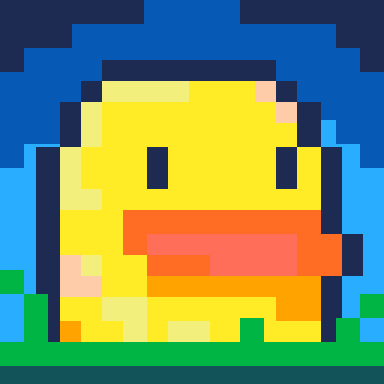
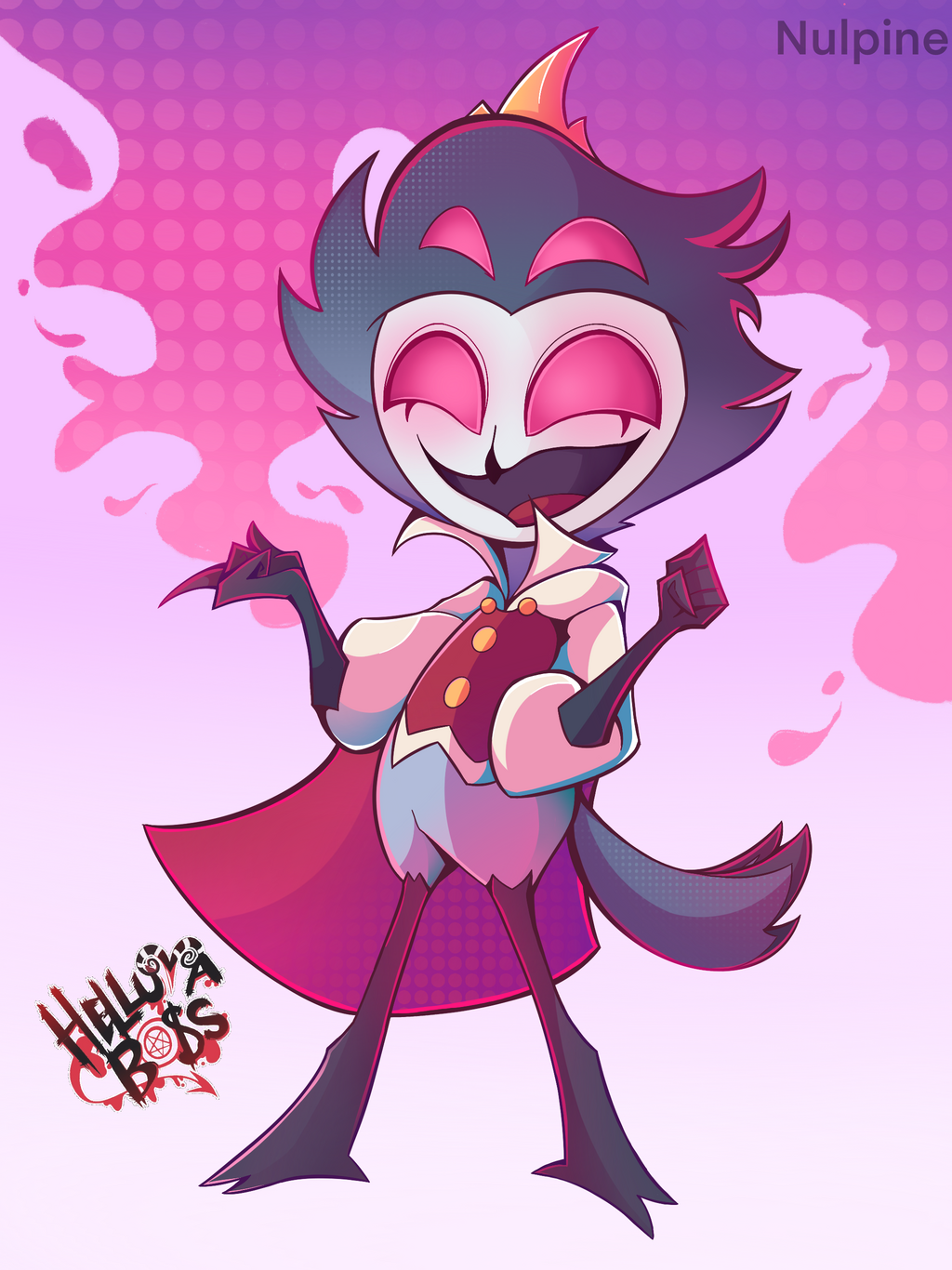









 0 comments
0 comments



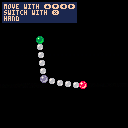
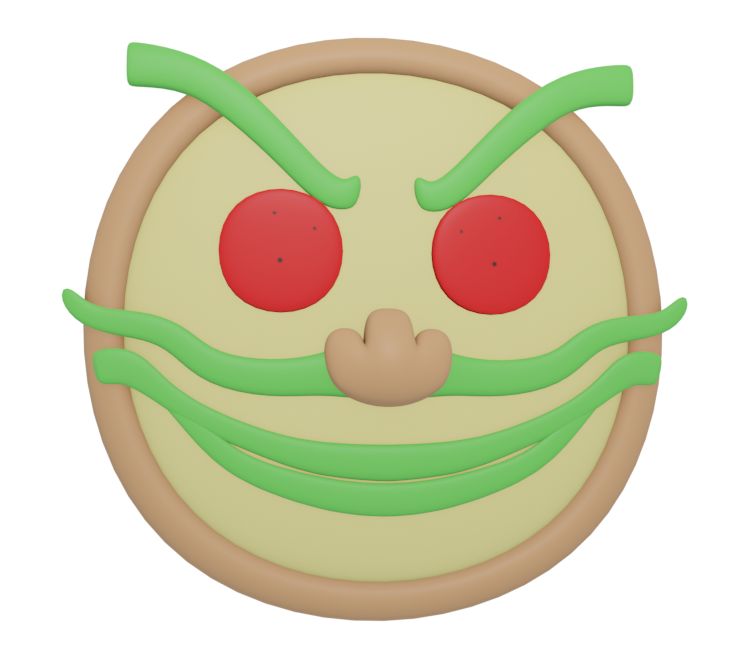
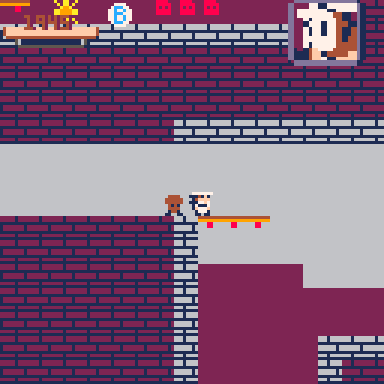 running and walking and running dont work???
running and walking and running dont work???